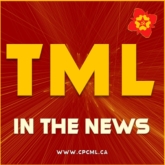"Here We Are on Our Feet, Fighting"

Cuban
President Miguel Díaz-Canel Bermúdez visits city
of Camagüey, November 28, 2024.
The challenges Cuba is facing stemming from the U.S. blockade and two major hurricanes and two earthquakes in quick succession, all imposing greater difficulties for the National Electro-Energetic System, have been taken up by the Cuban people with wisdom, creativity, and confidence.
Since January 2024, every month, together with leadership from the national and local governments and the Communist Party of Cuba, Cuba's President Miguel Díaz-Canel visits factories, farms, and communities in every province. That experience has brought out that while there are many problems, the potential for solving them is also evident. This potential does not come out of nothing but out of positive, concrete experiences where collectives of the people are making advances despite all the limitations. During his visits Díaz-Canel brings to the fore that the positive results are palpable.
Speaking November 28 in the city of Camagüey, he elaborated on the struggle being waged and on relations with the U.S.
"Here we are on our feet, fighting," he said, and expressed the conviction of the people that the current difficulties are surmountable. This has to do with the heroism of the people and the legacy of the Revolution, which has provided a solid foundation.
In Camagüey, which is also the capital city of Camagüey province, he visited the "Victoria de Girón" neighborhood of the Lenin-Albaisa Popular Council. He told residents that during these challenging times "we are doing more community work than in other times." He encouraged everyone to make proposals concerning priorities. The community is one where changes have been made for the functioning of social policies, efficiency of basic services and the spiritual well-being of the people.
He went on to emphasize that the visits are part of a work system designed to see "how we are following up on the main problems of economic and social development, and how we are ratifying the conviction we have, from what we see in provinces and cities, that such difficult times as these can be overcome with work, with talent, with intelligence, with innovation, and above all with your participation."
In each province, he explained, "we see places that work badly, but we also see places that work well. They have the same limitations as all the others: they lack fuel, they lack resources, they lack supplies." However, the leadership provided is different, including listening to the workers. The people, rather than complaining, propose innovative solutions for solving problems.
He also spoke about the election of Donald Trump, saying there are some who are announcing this means the end of the Revolution. "We have received this result with tranquility, without astonishment," he said. Cuba uses her experience and history of making all the preparations needed to today be fully prepared to counter any potential U.S. interference or intensification of the blockade.
The U.S. uses the blockade to try and bring Cuba to her knees, but despite the great difficulties imposed, and more than $1 trillion in economic losses over the years, she has stood firm and remains an inspiration to the peoples of the world.
Díaz-Canel elaborated on this. He explained, "We are facing an economic war, and yet we are here." He said Cuba's programs for development do not yield substantial results in days or weeks, but discrete results are already visible, as his visits around the country have shown. He also brought out that there is a whole group of investments and programs in alliance with friendly countries, which will also give positive results.
The president brought out that Cuba is not alone, giving the example of how the world's peoples and votes by the UN General Assembly have repeatedly condemned the U.S. blockade against Cuba, and call for it to end. He also reiterated that "We will not allow interference in our internal affairs, no matter who it comes from." He said Cuba will uphold her construction of socialism, and the prosperity it has created.
He added, "We once again ratify that we have nothing against the people of the United States." In terms of relations with the U.S. government he said, "We are open to dialogue and debate but without preconditions." Cuba wants to establish "a civilized relationship," based on recognizing that "we have and will always have ideological differences, but we can have neighbourly relations."
(Granma and website of the
Cuban Presidency, with translations from the original Spanish by
TML.)
This article was published in

Tuesday,
December 17, 2024
Article Link:
https://cpcml.ca/ITN2024/Articles/TI54703.HTM
Website: www.cpcml.ca Email: editor@cpcml.ca

